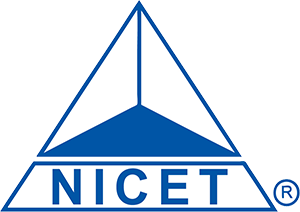Affiliations
Integrated Power Services (IPS) is a leading independent provider of single-source services for companies in industrial and commercial markets who can’t afford unplanned downtime. IPS opened its doors in 2007 to become the industry’s leading independent service provider. Today, IPS offers single-source capabilities to improve the reliability of critical infrastructure.
Founded in 1961, NICET‘s mission has been to provide an independent evaluation of technical knowledge and experience, through certification, among those working in the fields of engineering and engineering technology. NICET also helps define and support career paths for engineering technicians, and engineering technologists and related disciplines, and ensures recognition and continued professional development of certified individuals. National Field Services was instrumental in the program development for the field of Electrical Testing Technician certification.






